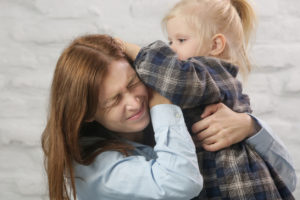
Experts promote early intervention as the best way to get your child on track and help them develop alongside their peers.
Keep reading to learn more about how early intensive behavioral intervention for autism could be the best opportunity to help your child thrive. For more information, contact Therapeutic Pathways at (209) 422-3280.
Intensive Early Intervention Can Help in Many Ways
Experts agree that early intervention is crucial in helping children with autism develop alongside their peers. Because children’s brains are more malleable, it’s important to get them treated early to improve their long-term outcomes.
Early intervention takes many forms, but early intensive behavioral intervention for autism is specifically designed for children under age five. A type of applied behavior analysis (ABA) therapy, EIBI helps children with autism develop positive behaviors and reduce harmful or aggressive behaviors.
Some of the harmful behaviors that EIBI helps to reduce include self-injury, tantrums, and aggression. At Therapeutic Pathways, a certified behavior analyst will work to reduce your child’s aggressive behaviors through a combination of intensive therapy and compassionate care.
EIBI is a highly customized and structured approach to autism treatment featuring several components:
Discrete Trial Training (DTT)
DTT is a highly structured type of therapy that falls under the umbrella of applied behavior analysis (ABA). The term Discrete Trial Training comes from breaking down a complex skill into smaller, “discrete” parts that are easier for children with autism to learn.
For example, a child has difficulty writing their name. Using DTT, a behavior therapist helps the child trace each letter of their name. Once the child has mastered this part, the therapist shows them how to write each letter of their name without tracing. Finally, the therapist asks the child to write their full name on a piece of paper.
The goal of DTT is to break down a skill into as many steps as the child needs. That’s why EIBI requires one-on-one meetings and support with a therapist.
One-on-One Therapy
A crucial aspect of EIBI, one-on-one therapy sessions allow for intensive, comprehensive treatment in a trusting environment. At Therapeutic Pathways, our Board Certified Behavior Analysts (BCBAs) work closely with each child to learn their strengths, weaknesses, and interests before developing an individualized plan for therapy.
Among many other things, one-on-one EIBI therapy sessions can help reduce aggressive or harmful behaviors that interfere with your child’s learning and development. Therapy can help your child fit in better with their peers, make more meaningful connections, and participate in activities they may not have otherwise.
During and after each therapy session, our BCBAs measure how your child is progressing using specifically tailored criteria. This helps us understand what your child needs and alerts us to any changes that can be made.
20-40 Hours of Treatment Weekly
Sessions at Therapeutic Pathways are intensive, meaning therapy typically takes up 20-40 hours per week and usually lasts two or more years.
That might sound like a lot, but intensive therapy helps children develop and master important skills that they can take with them throughout their lives. These skills, including social and daily living skills, will help your child lead a more independent and fulfilling life in the future.
Intensive Early Intervention Helps Reduce Aggressive Behavior in Toddlers
It may not seem like a big deal when a toddler with autism shows aggressive behavior but left untreated, these negative behaviors can inhibit their development and ability to learn.
That’s why it’s so important to seek treatment for your child as soon as possible. Research shows that early intervention is one of the best ways to help children with autism catch up to their peers and build the foundation for an independent, fulfilling life.
More research is needed to refine the intensity and duration of treatment, but this type of therapy is highly promising for young children with autism. Dozens of studies suggest that EIBI is an effective treatment for children with autism experiencing various symptoms, and Therapeutic Pathways is happy to provide additional information and resources for parents or caregivers who want to learn more about this type of therapy.
For more information, please call (209) 422-3280.
 Listen to Our Podcast
Listen to Our Podcast